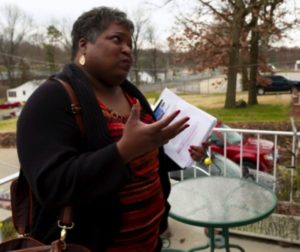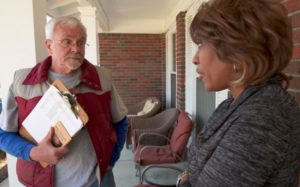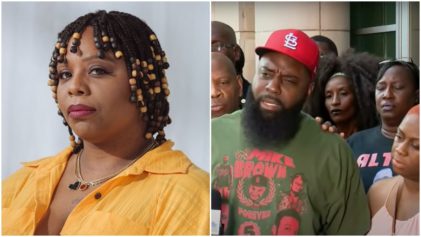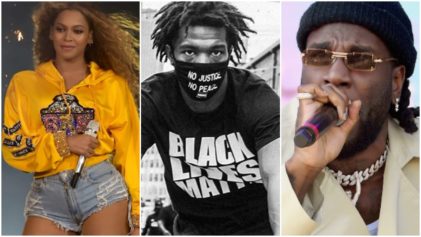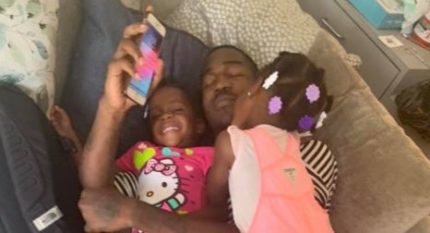In many ways since last August, Ferguson has become a touchstone, a zeroed-in destination through which the United States has gauged its collective standing on race in the country.
The persistent protests since unarmed teenager Michael Brown was gunned down by a police officer on the streets of the small town outside of St. Louis told of unrest, divide and a desperate need for change.
Much of that needed change can begin today, with City Council elections where 66 percent of its citizens are Black but just one of eight council members are African-American. That imbalance speaks to a lack of political power looking out for the interests of Blacks in the community.
There are three open seats on the council—one ward has only white candidates; another, only Black candidates. But the most interesting is Ward 1, where there are two Black and two white candidates. The victor will determine whether Ferguson’s City Council remains mostly white or divided equally between Black and white members.
Interestingly enough, two of the prime candidates—one a Black woman, the other a white man—exemplify the polar opposite views that divided the city in the first place. Interviews with them on Al Jazeera America illustrated how things could stay the same if Mike McGrath, who is white and lived in Ferguson for 21 years, beats out Adrienne Hawkins, a Black single mom who was once on government assistance and who grew up in Ferguson.
Read how they expressed their differences to Al Jazeera on major issues:
* On why they are running:
McGrath: “I really care about this town. I need to be on that council to help fix the things that need to be fixed and keep this community going forward.”
Hawkins: “It was the death of Michael Brown. Just the thought of my children not returning home from walking down the street was way too much to handle. And something had to change. I watched the protests, and I watched the women rise. And it filled me with hope.”
* On the racial strife in Ferguson:
McGrath: “I don’t believe there is a big racial divide. . . because if it was, why would they still stay here?”
Hawkins: “Ferguson is divided. . . I come from the side of Ferguson where most of the action occurred, and I’ve always felt a little disconnected. I think that in order to deal with an issue, you have to address an issue. If you dance around the issue, you still have a problem. It’s a powder keg, and one day it’s going to blow a lot larger than it did in August and November. We have to acknowledge the elephant in the room or somebody could get hurt.”
* On why they did not protest:
McGrath: “I didn’t believe [the protests] were warranted. I was on the side of the law and order, not the protesters. I used to volunteer with the police department, so I knew most of the people involved that were there responding to it.”
Hawkins: “It was overwhelming for me. It touched me deeply, and I was afraid for the safety of the young people, because of anger that they carried with them, and I didn’t want to witness anybody else getting hurt.”
* On race in the elections:
McGrath: “It was never an issue before. I wish it wasn’t now. It shouldn’t be.”
Hawkins: “It’s huge. . . Most of the people who are happy with the way Ferguson always been happen to be white. I love Ferguson, but I need Ferguson to be more diverse and more inclusive.”
* On the significance of the elections:
McGrath: “We need to somewhat go back to the norm. Now, you don’t want everything [to be] the norm. Some things were bad. But you should be able to let the people go back. Let the community be a community. . . They don’t know how to react to the protesters. They’re scared of those people. They don’t relate to them. They’ve never been there.”
Hawkins: “This election is a pivotal election in the country because we’re under the microscope. If we can change things in Ferguson, the rest of the world, it’s just a matter of time before things get better, all the way around. Not just for African-Americans but for everybody.”
* On the Justice Department report:
McGrath: “We did not expect it to be a rosy report. They went in with an agenda. Their agenda originally was to make Officer (Darren) Wilson look guilty. The more they investigated, the more it validated the grand jury’s findings that Officer Wilson was justified in his actions and was defending himself.”
Hawkins: “I was sickened by it. It’s one thing to hear and to know that something is one-sided. But to have it proven in writing? It was really sickening for me, and it was difficult for me to read the report.”
* On the biggest issues facing Ferguson:
McGrath: “When I talk to people, the overwhelmingly No. 1 complaint everybody has is ‘my streets.’ No matter what shape their streets are in, that’s all I hear about. And second in line, it’s the school districts.”
Hawkins: “Fear. There’s fear on the side of most of the African-Americans who feel in desperate situations. I think it’s the fear that the system won’t ever change, won’t ever be fair, won’t ever offer them opportunity, won’t ever give them any justice. And then on the other side, there’s fear of losing white privilege, which a lot of people don’t acknowledge that they have. There’s fear that things will change and be different for them. There’s fear that the black people will rise up and attack them.”
* On what they will do as council member:
McGrath: “Trying to have a few more town hall meetings and getting citizens involved. When there’s a disaster, people get involved. When they get comfortable, they become disinvolved. But if you really want to make a difference, then you have to be involved in the process.”
Hawkins: “I think that the people on my side of Ferguson need to be empowered. I think that the people on the other side of Ferguson need to be restored. I think that if we get jobs for the people who live on my side of Ferguson, help them feed their families, help them not to work two and three jobs or try to figure out how to meet their basic needs, I feel like they’ll be empowered. The people who feel like they’ve been called racists or they’ve been targeted unfairly, we need to make sure that we do something to heal that wound as well and to restore them.”
